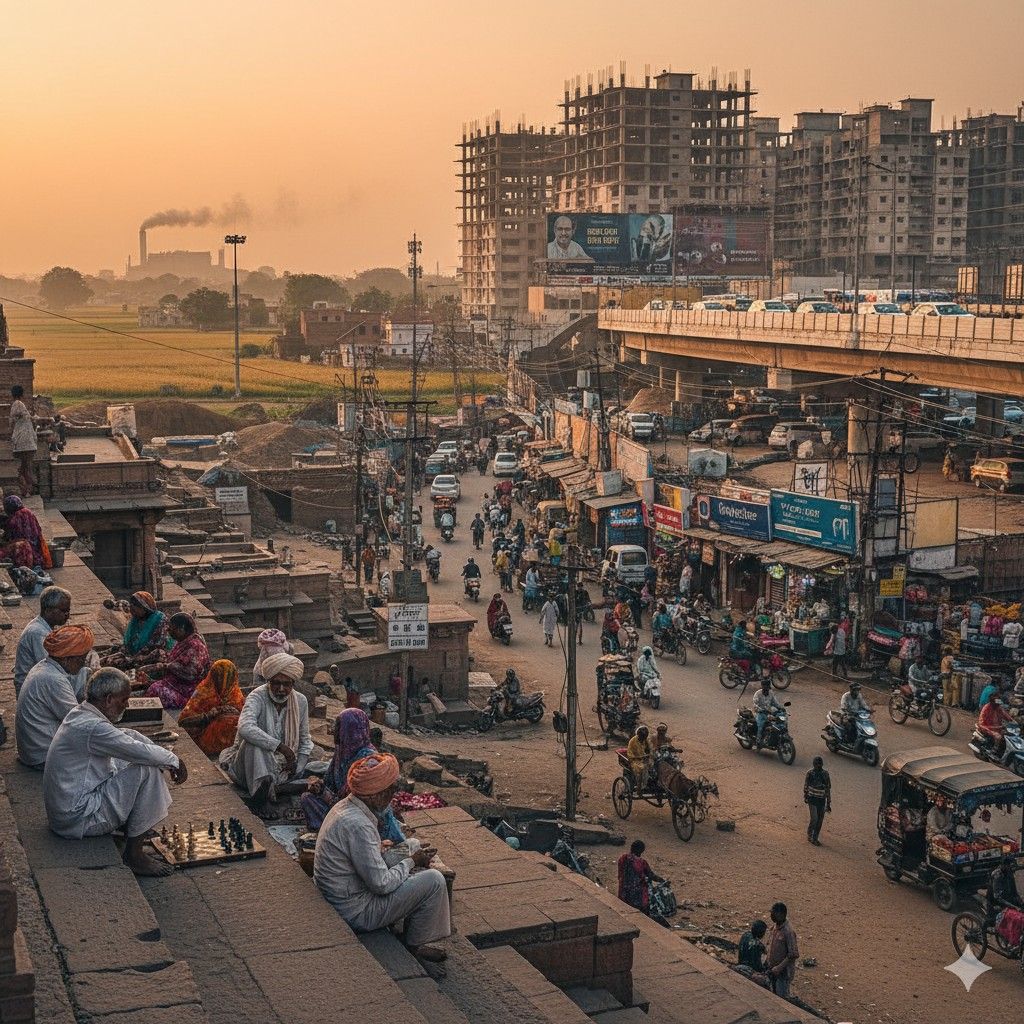
Is Progress a Philosophical Illusion? Perspectives from Uttar Pradesh
- admin
- November 11, 2025
- Lifestyle, Opinion & Analysis
- 0 Comments
A Critical Examination of Developmental Narratives in a Socio-Political Context
Uttar Pradesh, as India’s most populous state and a pivotal player in its political landscape, provides an unparalleled framework for exploring the nature of progress. Is the state’s developmental trajectory an authentic narrative of transformation, or does it represent a philosophical construct shaped by cultural and political ideologies? The tension between rapid urbanization, entrenched rural disparities, and the enduring influence of cultural philosophies invites a deeper inquiry into whether progress is an empirical reality or a conceptual abstraction.
Key Metrics and Contextual Dynamics
- Demographic Complexity: Uttar Pradesh, with a population exceeding 240 million, accounts for nearly 16% of India’s population, showcasing the interplay of socio-economic and cultural diversity.
- Economic Contribution: The state contributes approximately ₹20 lakh crore to India’s GDP, with agriculture forming its backbone while industrial and service sectors emerge as growth engines.
- Cultural Foundations: Rooted in narratives such as Ram Rajya, the state’s policy frameworks are deeply influenced by philosophical ideals and spiritual heritage.
- Systemic Challenges: Persistent unemployment, gender disparities, and regional inequities question the inclusivity of Uttar Pradesh’s developmental agenda.
Deconstructing the Paradigm of Progress
- Economic Expansion versus Equitable Growth:
- Urban Focus: Investment in urban hubs such as Lucknow, Noida, and Kanpur has accelerated economic activity but exacerbated rural marginalization, particularly in Bundelkhand and Purvanchal.
- Agrarian Limitations: Despite modernization efforts, over 70% of the rural workforce remains dependent on subsistence farming, with limited integration into broader markets.
- Infrastructure Development:
- Projects like the Purvanchal Expressway and Noida International Airport are celebrated as symbols of progress.
- Critical Perspective: These initiatives often disproportionately benefit urban elites while displacing marginalized communities, many of whom receive insufficient rehabilitation.
- Cultural and Philosophical Underpinnings:
- Ram Rajya Ideal: The philosophy emphasizes governance aligned with justice and equity but often collides with socio-political realities such as caste hierarchies and gender disparities.
- Cultural Aspirations versus Structural Realities: The tension between aspirational governance and ground-level inequities underscores the fragility of the progress narrative.
Philosophical Interrogations of Progress
- Illusions of Linearity:
- Conventional progress paradigms assume linear trajectories, ignoring cyclical and systemic disruptions. Uttar Pradesh exemplifies this contradiction through its uneven development.
- Cultural Relativism in Development Metrics:
- Progress in Uttar Pradesh is deeply contextual, shaped by its cultural ethos, rendering Western benchmarks of development inadequate.
- Politicization of Progress:
- Infrastructure and welfare schemes often serve electoral imperatives rather than addressing systemic challenges, reducing progress to a political construct.
Empirical Insights: Case Studies
- Healthcare Infrastructure:
- Initiatives like Ayushman Bharat offer potential but are undermined by a doctor-to-patient ratio of 1:3,526, well below WHO standards.
- Educational Reforms:
- Mission Shakti has advanced female enrollment, yet rural dropout rates persist due to systemic barriers, including inadequate facilities.
- Employment Programs:
- Schemes such as ODOP (One District One Product) aim to boost local economies but face challenges in scalability and equitable impact.
Reimagining Progress: Strategic Recommendations
- Contextual Frameworks:
- Develop region-specific models that integrate socio-economic metrics with cultural values, ensuring a holistic understanding of progress.
- Address Regional Disparities:
- Prioritize targeted investments in underserved areas, particularly Bundelkhand and Purvanchal, to bridge developmental gaps.
- Community-Centric Governance:
- Strengthen participatory mechanisms to align policy initiatives with grassroots realities, fostering inclusivity and accountability.
- Integrating Philosophy with Policy:
- Leverage cultural narratives as instruments for policy innovation, ensuring sustainability and resonance with local contexts.
Conclusion: Navigating the Dichotomy of Progress
In Uttar Pradesh, the concept of progress oscillates between philosophical ideals and empirical realities. While strides in infrastructure and welfare indicate forward momentum, entrenched inequities and systemic inefficiencies challenge the authenticity of these narratives. By embracing a multidimensional approach that reconciles cultural heritage with developmental imperatives, Uttar Pradesh has the potential to redefine progress as an inclusive and sustainable paradigm, setting an exemplar for broader national discourse.




